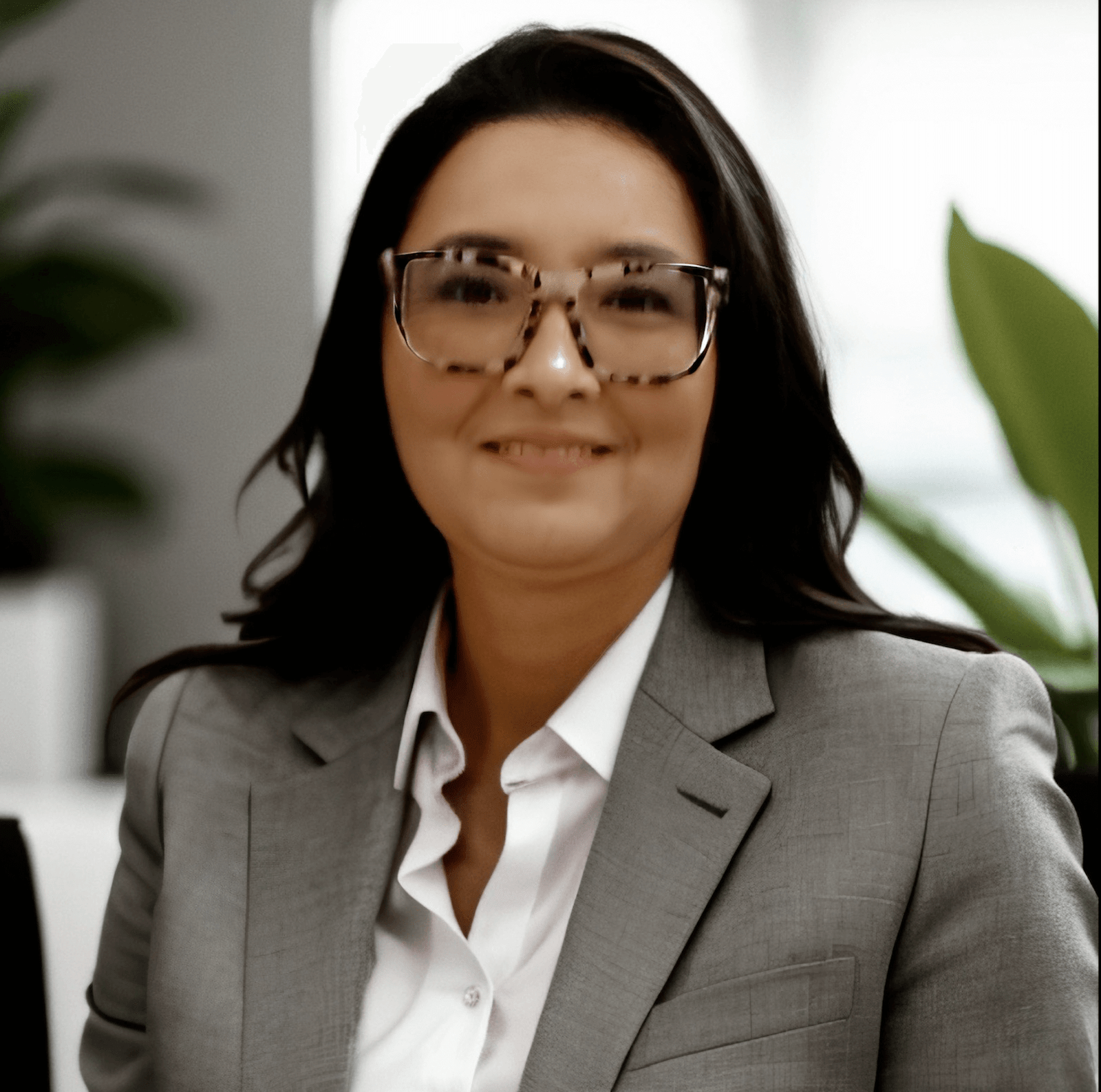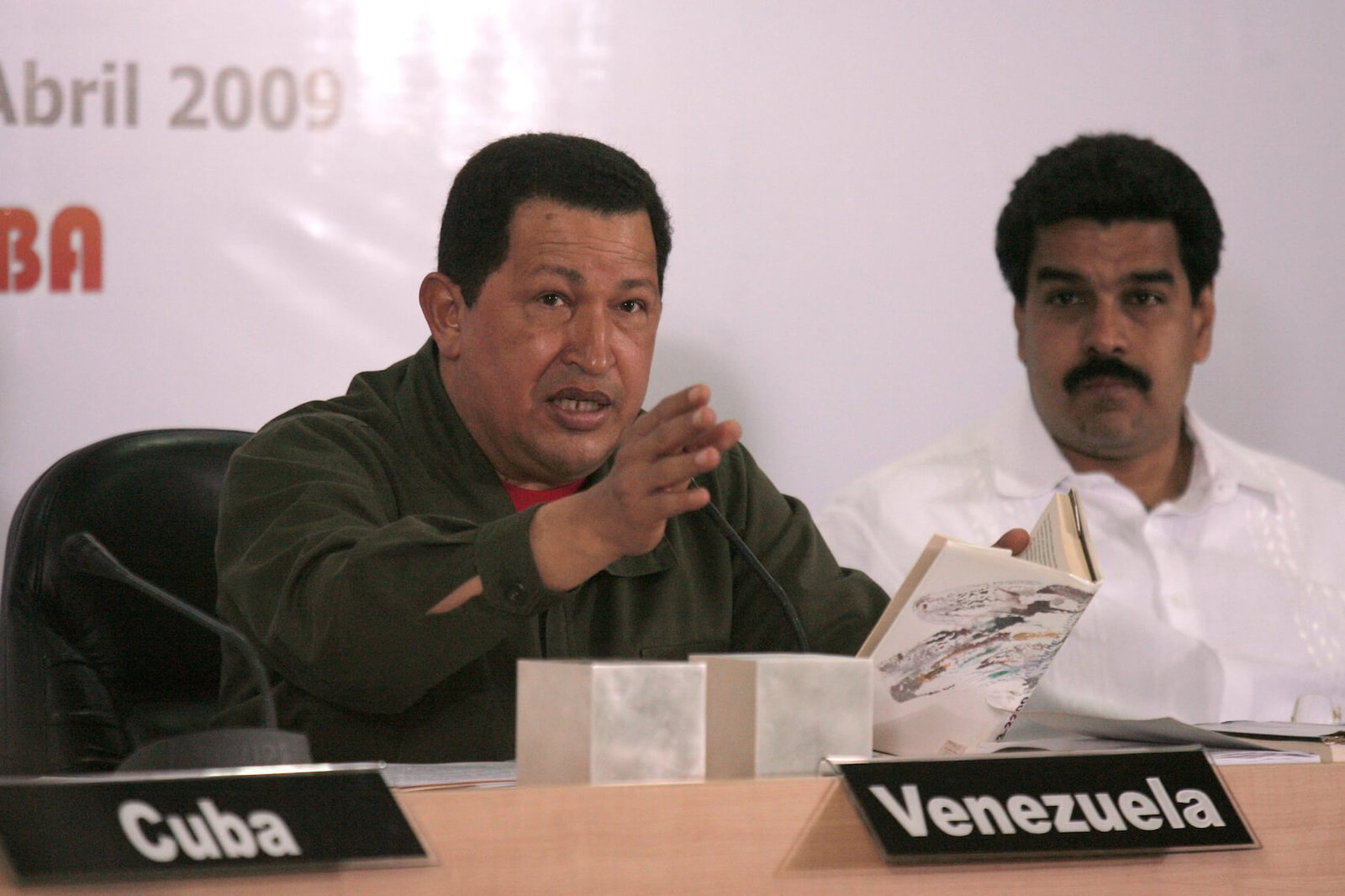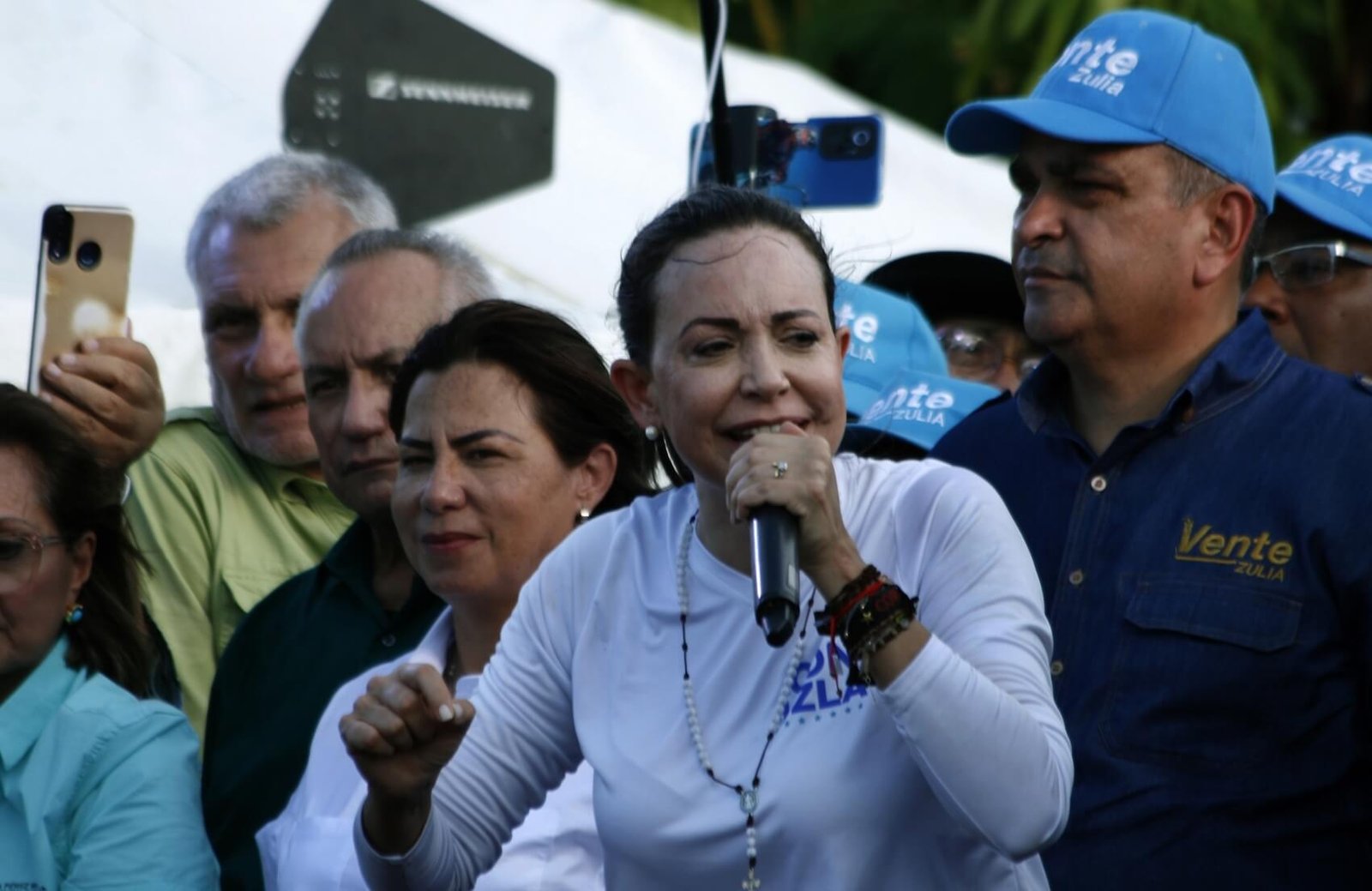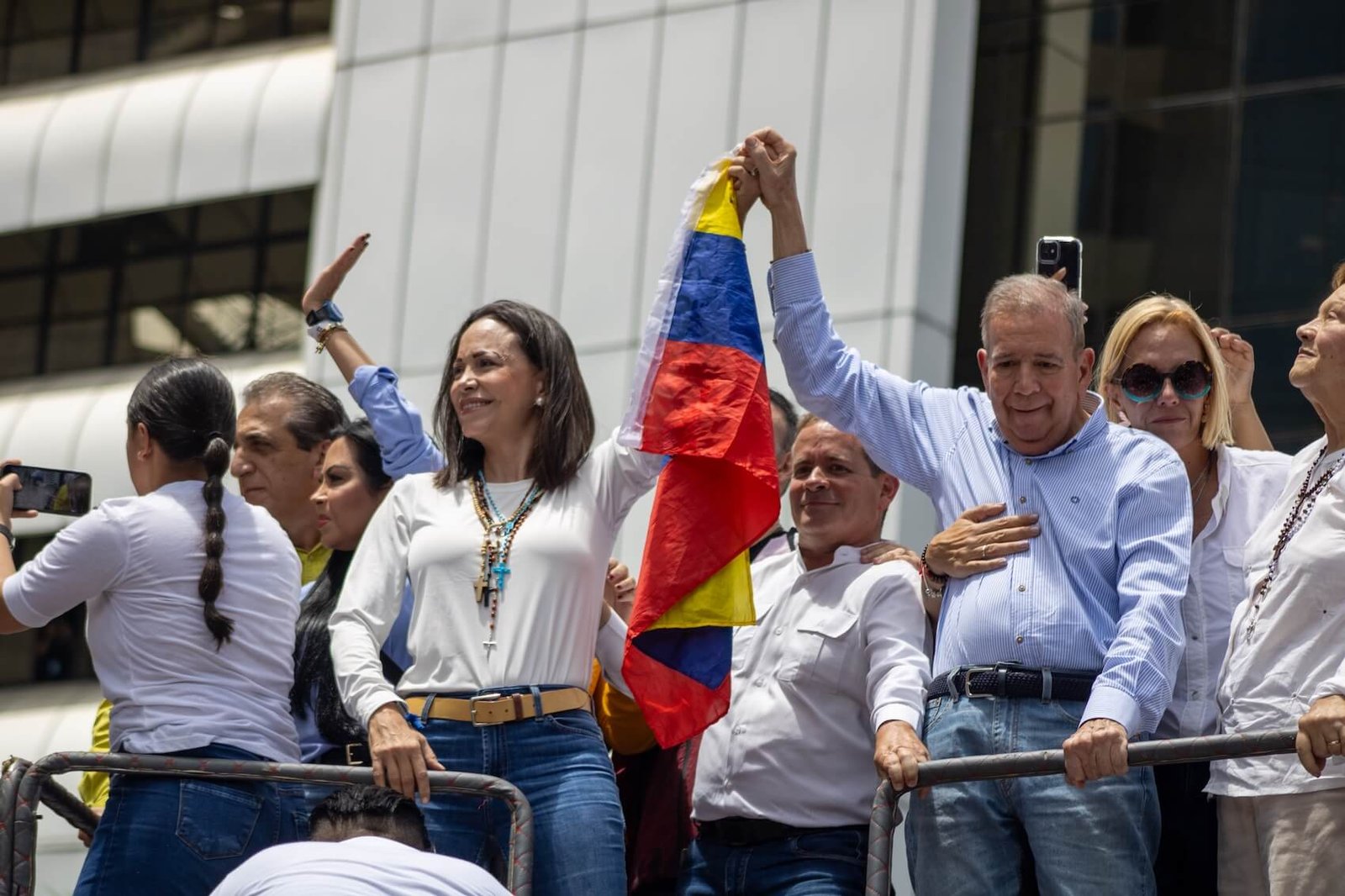Professor Maria Isabel Puerta Riera: Maduro will not concede, recognize his defeat, or agree to any outcome other than his reelection. I think we are going to see a lot more violence coming from the government. Unfortunately, I don’t think Brazil, Colombia, and Mexico understand that their efforts are not enough. They are not going to convince Maduro. The fundamental issue is not just Maduro and his coalition, but the military, which is keeping Maduro in power. The only way Maduro can leave power is if the military turns on him, and that’s not happening. Maduro’s main concern is not power for its own sake but remaining protected to avoid facing justice, both internationally and in the United States, where he faces very serious charges. This is the crux of the issue—Maduro cannot leave power without facing justice.
Interview by Selcuk Gultasli
In an interview on Friday with the European Center for Populism Studies (ECPS), Professor Maria Isabel Puerta Riera, a political scientist at Valencia College, US, assessed the recent controversial elections in her homeland Venezuela and stated that “Maduro has lost support, not just in terms of popularity, but also in the Chavista strongholds that historically voted overwhelmingly for Chavismo and Chavez. He lost these key areas, which were once solidly pro-Chavez, and they now voted against Maduro. As a result, he has decimated whatever was left of the Chavista movement as a popular political force. I’m confident that the movement is pretty much lost. Maduro, who was the heir to Chavez’s legacy, is likely the reason why the movement will not survive.”
Professor Puerta Riera shared her insights into the increasing repression under Maduro’s regime. "What I’m seeing now is an escalation of repression. For example, they are going to the homes of poll watchers and poll workers, taking them into custody without clear charges. These individuals are opposition members." She continued, "What we are witnessing now is beyond the usual repression and persecution. Our impression is that Maduro is radicalizing. He will not concede, recognize his defeat, or agree to any outcome other than his reelection. I think we are going to see a lot more violence coming from the government."
Highlighting the international dynamics, Professor Puerta Riera remarked, "Unfortunately, I don’t think Brazil, Colombia, and Mexico understand that their efforts are not enough. They are not going to convince Maduro. The fundamental issue is not just Maduro and his coalition, but the military, which is keeping Maduro in power." She further emphasized that the only way Maduro could leave power is if the military turns on him, which she does not see happening. “Maduro’s main concern is not power for its own sake but remaining protected to avoid facing justice, both internationally and in the United States, where he faces very serious charges. This is the crux of the issue—Maduro cannot leave power without facing justice.”
In discussing the socioeconomic collapse of Venezuela, she painted a grim picture, "Poverty has now reached the middle class, and we essentially no longer have a middle class. The wealth gap and socioeconomic structure in Venezuela have deteriorated to the point of widespread malnutrition, lower life expectancy and very limited access to health services and education."
With nearly 8 million people having left the country, she questioned, "How does a country sustain itself with an aging population, no social security, and no access to medicines or doctors?" She concluded by emphasizing the dire economic and social scenario, "There’s no way to invest in Venezuela, not just because of the political situation, but also because there is no consumption. The population is decreasing and those who remain have no means to even have a meal."

Here is the transcription of the interview with Professor Maria Isabel Puerta Riera with some edits.
Chaves Created an Illusion That the People Had Power over the Economy
Professor Maria Puerta Riera, thank you so very much for your time. Let me start right away with the first question. What were the key socio-economic conditions and political dynamics in Venezuela that led to the rise of Hugo Chavez and the Chavismo?
Professor Maria Puerta Riera: I think there was a very complex scenario for Hugo Chavez and his political movement when the political system was under a lot of stress. The political elites and parties faced a significant lack of trust, not only from the poor and underprivileged but also from the middle class and some socioeconomic elites. They were essentially giving up on the status quo.
The Venezuelan electorate was convinced that the establishment elites and political parties had failed to introduce major reforms, not just in the economy but also in addressing the wealth disparity and corruption. The lack of trust and the shortsightedness of political parties and leadership led people to consider a different option, one that had some history.
Chavez’s attempted coup shouldn’t be overlooked. Many saw it as a credential, thinking he aimed to eliminate corruption and inefficiency. The failed coup gave him notoriety and elevated his profile, although he wasn’t initially part of the democratic process. He later abandoned his call for electoral abstention and became a candidate himself. This marked the point where Venezuelan democracy was compromised, as the belief emerged that someone with Chavez’s background could be a savior.
How would you describe the political and economic legacy of Hugo Chavez in Venezuela? What were the major successes and failures of his policies?

Professor Maria Puerta Riera: Well, I think he came with a message that aimed to close the gap between those who controlled the wealth associated with the government and the state. His message was one of inclusion and participation, although when it came to policy, it was essentially about replacing one elite group with another. They quickly dismantled the state after the new constitution passed.
It was not just a power grab, even though he won elections; it was about cutting any institutional limitations or basic checks and balances. These were diminished through legal means. Every election became an opportunity to remove any obstacles or limits to his power.
Chavez turned to oil income not just to redistribute wealth but also to create dependence. Clientelism is not new to Venezuelan politics, but under Chavez, it became so prominent that it was almost impossible for people, especially towards the end of his last term, to participate politically and socially without aligning with the government.
All the social programs he designed early on made it nearly impossible for people to benefit without identifying with and becoming part of what the government could control. The economy became an instrument for Chavez to gain more control, as he not only controlled state agencies, companies and corporations like the oil industry but also targeted private sector industries, bringing them to their knees.
He created the illusion that the people had power over the economy, but in reality, he weakened the entire economic system through legal means and controlled participation. The current deplorable state of Venezuela’s economy is often attributed to sanctions, but that is not the full explanation for the crisis.
Venezuela Joins a Group of Nations That Represents the Antithesis of Democracy
How does the Chavismo movement in Venezuela compare with other left-wing populist movements in Latin America? Are there common patterns or significant differences?
Professor Maria Puerta Riera: There are some similarities, especially now with other closed autocracies. Venezuela has been inevitably linked to Cuba, not just because of the close ties with Castro, both Castros and Miguel Díaz-Canel, but because of similar patterns in legislation, state control, social monitoring, constraints on political and civic participation, and human rights violations. If we were to establish a category, we should start at the top with Cuba and Nicaragua. Venezuela joins a small group of nations that can be considered the antithesis of any democracy in the region.
There are leftist governments that are democracies, such as Chile and Colombia under Gustavo Petro. Despite challenges, Petro hasn’t done what Nicaragua and Venezuela have done, which is to dismantle the Constitution and legal framework to ignore basic democratic institutions and mandates. More critically, there is the suppression of the opposition and that’s where we are right now.
Cuba, Venezuela and Nicaragua are regimes that do not recognize the opposition’s space and place in their political systems because they are not formal democracies. They are closed autocracies. That’s what we’re seeing right now.
How has Nicolas Maduro’s leadership differed from Hugo Chavez’s? In what ways has Maduro’s regime become more autocratic compared to his predecessor?
Professor Maria Puerta Riera: Well, I think it’s important to establish a key difference. Chavez had charisma, which we can criticize alongside his populist approach to power. While his methods can be contentious, they were sometimes effective in advancing certain agendas. He also had some authoritarian tendencies.
The problem for Maduro is that he has no military background. In Venezuela, there has historically been an attraction to strong men and Chavez, as a military commander, embodied that appeal. He was seen as a man of power, which resonated with the people.
Maduro, on the other hand, has no military background and lacks charisma. He inherited political assets and a regime built around the myth of Hugo Chavez and Chavismo. However, he has essentially destroyed Chavez’s legacy, not just because of the economic collapse and humanitarian catastrophe resulting from his inability to govern, but more importantly, due to the complete disengagement with the political base Chavez left behind.
We just received the second bulletin from the Electoral Council and the numbers don’t add up. Despite this, we understand that Maduro has lost support, not just in terms of popularity, but also in the Chavista strongholds that historically voted overwhelmingly for Chavismo and Chavez. He lost these key areas, which were once solidly pro-Chavez, and they now voted against Maduro.
As a result, he has decimated whatever was left of the Chavista movement as a popular political force. I’m confident that the movement is pretty much lost. Maduro, who was the heir to Chavez’s legacy, is likely the reason why the movement will not survive.
It Was a Fraudulent Election

There is wide-spread speculation that the presidential election in Venezuela was rigged. What is your assessment of the elections process and the re-election of Nicolas Maduro for another six years as president?
Professor Maria Puerta Riera: Well, I think it was a fraudulent election. It was always going to be very difficult for the opposition to win, given all the obstacles they faced. Despite the challenges in terms of participation, the tallies and reports from credible sources, like the Carter Center, indicate that the election was not free and fair. The results being issued cannot be trusted.
The tallies from the voting machines tell a different story. Several experts have confirmed that the numbers the government is trying to validate through the highest court are unreliable. We believe that the opposition, led by Mundo Gonzalez, won overwhelmingly, as indicated by polls, exit polls and the published tallies, which cannot be easily falsified.
There have been calls from the international community, including Brazil, Colombia and Mexico, to show the true tallies. The election results being certified do not reflect what actually happened on Sunday and a majority of Venezuelans believe there was fraud, not in the voting itself, but in the results the government is presenting, which do not match the supporting evidence.
Massive crowds took to the streets to protest the results of the election and according to New York Times at least 17 people have been killed. It is not the first time that people took to streets to show their anger. Do you think the protests could yield any result this time? In light of the elections and widespread protests, how do you think the political landscape in Venezuela might change? What impact could these elections and protests have on Maduro’s hold on power?
Professor Maria Puerta Riera: Well, repression has always been the reaction, not just under Maduro but under Chavez as well. What I’m seeing now is an escalation of repression. For example, they are going to the homes of poll watchers and poll workers, taking them into custody without clear charges. These individuals are opposition members.
What we are witnessing now is beyond the usual repression and persecution. Our impression is that Maduro is radicalizing. He will not concede, recognize his defeat, or agree to any outcome other than his reelection. I think we are going to see a lot more violence coming from the government.
Unfortunately, I don’t think Brazil, Colombia and Mexico understand that their efforts are not enough. They are not going to convince Maduro. The fundamental issue is not just Maduro and his coalition, but the military, which is keeping Maduro in power.
The opposition leader, María Corina Machado, released data on Tuesday that she said showed Mr. Edmundo González, the candidate she backed, winning the presidency in a landslide. The opposition’s updated results, using paper tallies observers collected from 81 percent of the nation’s voting machines, showed that Mr. Gonzalez had won 7.1 million votes, or 67 percent, versus 3.2 million, or 30 percent, for Mr. Maduro. Do you think these figures could be true?

Professor Maria Puerta Riera: Well, I am inclined to believe what they are showing because María Corina Machado has extensive expertise in electoral processes that no one else in Venezuela can match. They have the infrastructure and the knowledge and I can confidently say they are not falsifying results.
We also have experts, not just those close to the opposition but also academics here in the US and Europe, who have reviewed the tallies. They confirm what we all know: that Gonzales won overwhelmingly. The problem for the government is that they have waited so long without providing verification or audits and they have turned to the Supreme Court.
This delay and reliance on the highest court do not instill trust in what the regime says. People’s trust lies with the opposition, because Maduro and his government have eroded trust in themselves.
Just look at the process: how they blocked every candidate, even the one elected in a primary. They thought they would win or that if they lost, it would be manageable. What we are seeing is that they can’t manage the loss.
Maduro Cannot Leave Power without Facing Justice
Venezuela’s foreign minister announced that the country was expelling diplomatic missions from seven Latin American countries that had condemned the official election results. Do you think the external pressure will persuade Mr. Maduro to accept the result of the polls? Do you think Venezuela under Maduro risks being diplomatically isolated?
Professor Maria Puerta Riera: I think Maduro is not going to follow any recommendations that involve conceding or recognizing his loss. He simply won’t do it. Brazil, Colombia and Mexico, who are the ones negotiating with Maduro, are trying to find a way for him to take an action that will resolve this situation. Unfortunately, the only viable option would be for him to recognize the results.
The problem for these three countries is that if the results do not recognize Gonzales’ victory, it will trigger another wave of Venezuelan migrants. Colombia, Mexico and Brazil will be the most affected by this. Their primary interest is not necessarily in upholding democracy or even keeping Maduro in power, but in preventing another migrant crisis. Unfortunately, this doesn’t seem possible.
The only way Maduro can leave power is if the military turns on him, and that’s not happening. Maduro’s main concern is not power for its own sake but remaining protected to avoid facing justice, both internationally and in the United States, where he faces very serious charges. This is the crux of the issue—Maduro cannot leave power without facing justice.
It’s not just Maduro; the top military brass also faces serious charges in the United States, including corruption, drug charges and human rights violations. They will remain in power unless they receive guarantees of immunity. However, we have not yet reached that point.
I think most countries that have withdrawn their diplomatic representation, such as Argentina and Chile, will continue to antagonize Maduro. Figures like Gabriel Boric (Chile) or Javier Milei (Argentina) will likely do the same, so they won’t be helpful.
Colombia, Brazil and Mexico are trying to maintain a back channel and avoid further isolation for Venezuela, but I think that’s inevitable. Maduro understands there is no way out. He entered this election seeking some form of legitimacy to convince the US to lift sanctions, regardless of the outcome. However, the international community is not going to recognize him as the legitimate president.
The Carter Center has been very forceful in its assessment, so Maduro lacks the legitimacy he thought would be enough to secure resources. He needs money, but he’s not going to get it. The sanctions are not going to be lifted. I’m not sure if there are any other sanctions the US can impose, as the country is already under heavy constraints and limitations.Maduro made his decision knowing that he, his regime and the country will become more and more isolated. I don’t think the region is ready for what is coming.
Maduro Believes He Can Survive Isolation
Mr. Maduro did receive support from allied leaders in Cuba, Serbia, Nicaragua, Russia, Bolivia and Honduras together with China and Iran, who applauded the results. Maduro has been hailed by the autocrats globally. How do you think this support will help Mr. Maduro as a populist to cement his rule? What roles have international and regional actors who show solidarity with Maduro played in shaping the trajectory of Chavismo and Maduro’s regime? How have possible US sanctions and other international pressures impacted Venezuela?
Professor Maria Puerta Riera: It’s clear that Maduro has made his choice, as I said. He is no longer seen as part of a democratic system and is not recognized as such. It makes sense for him to double down on his alliance with other illiberal, anti-democratic, closed autocracies. He has no other choice; he doesn’t belong in a regional or global community of democracies.
Maduro is likely seeking protection within this alliance. Yes, he will be isolated from democracies in the region and around the world, but he may find support from China and Russia, which could help him maintain his regime. We don’t know if China will support Maduro financially, but there might be possibilities once Venezuela settles its oil debt with China. This could lead to further investments from China, which is something he can’t expect from Russia. Strengthening ties with Iran is another strategy they have used to survive.
My guess is that Maduro believes he can survive this isolation, but it will be very hard for him to gain any financial breathing room. The challenges are immense, not just because of the huge debt, but also because the economic forecast in Venezuela is dire. With GDP, inflation, over 80% of the population in poverty, and more than 50% in extreme poverty, the socioeconomic structure has deteriorated to the point where people make approximately $130 a month. This situation is unsustainable. Maduro may stay in power, but it will not be due to popular support. The people are not willing to accept his mandate. It will be very difficult, and we will likely see a lot of repression because it is clear that the Venezuelan people do not recognize him as their leader.
In your article titled Venezuela: The Decline of a Democracy you wrote back in 2018 you argued that the economic imbalance has increased the chances of social disintegration while government focuses on holding to power. Six years after your article what can you tell us about the nature of democracy in the country and the looming possibility of social disintegration?

Professor Maria Puerta Riera: I think, unfortunately, the situation has worsened. Poverty has now reached the middle class, and we essentially no longer have a middle class. The wealth gap and socioeconomic structure in Venezuela have deteriorated to the point of widespread malnutrition, lower life expectancy and very limited access to health services and education.
We have a country where nearly 8 million people have left. How does a country sustain itself with an aging population, no social security and no access to medicines or doctors? Young doctors and teachers are leaving the country. The workforce is either too old to work or the very young are just waiting to finish school—if they finish—only to leave the country.
How does the population sustain itself with an economic structure where people have no jobs? There’s no way to invest in Venezuela, not just because of the political situation, but also because there is no consumption. The population is decreasing, and those who remain have no means to even have a meal. That’s what I refer to as a dire scenario, and we are already in that scenario.


